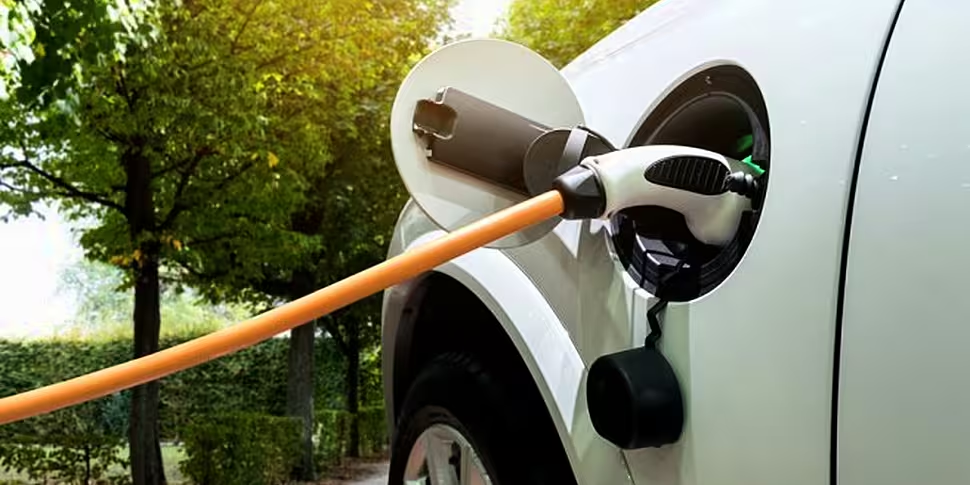It is a certainty that in the future fully electric cars, trucks and vans are going to be the only type of vehicles we buy. How far into the future is uncertain, but some countries are already putting down markers.
Last week France announced it was going to ban the sale of petrol and diesel vehicles by 2040. Last year Holland said it was going to ban the sale of combustion engines by 2025.
And the industry is reacting. Tesla, the innovation leader in this space, is launching its first mass market product later this month. Volvo has announced that by 2019 all of its models will be fully or partly electric. And pretty much all other major car manufacturers are moving in this direction too.
So how is Ireland shaping up to take advantage of this monumental shift in the way we travel? Not great it turns out.
Back to the start
Back in 2008, when electric cars were nothing more than a novelty, the Irish government set itself the ambitious goal of having 10 percent of the car fleet — about quarter of a million cars — electric by 2020. This timeline matched up well with Ireland’s climate change targets which Ireland had pledged to meet — promising to slash carbon emissions by 20 percent from 2005 levels as part an overarching EU goal.
By 2014, the expected surge in electric car purchases had not happened and the government slashed the 2020 target to just 50,000 electric vehicles “to better reflect the prevailing macroeconomic climate.”
Fast forward to 2017 and the government looked once again at the prevailing climate for EVs in Ireland. Taking into account factors such as technology, “fuel price evolution” and “alternative fuels infrastructure” it once again slashed the 2020 goal to just 20,000 vehicles.
In the space of less than a decade Ireland has slashed its ambitions to less than 10 percent of its original total — and this coming at a time when practically all other nations are looking to increase their ambitions in this area. Germany for example wants 1 million EVs on its roads by 2020 and is investing €500 million to do so.
The big worry of course is that Ireland won’t even meet its 2020 target, given that as of today, just 3,000 electric vehicles or hybrids are on our roads.
“All of us around the table have failed abysmally to make any meaningful impact on achieving climate change targets in transport. What we need is a phenomenal level of disruption in the cosiness that we have all effectively been part of,” Timmy Dooley said recently at a three-hour session of the Dáil Committee on Communications, Climate Action and Environment.
The failure to get the public more interested in using electric vehicles is pretty staggering given the incentives in place. Not only will the government give you a €5,000 grants towards new electric vehicles, but it will also give you the fuel to run them for free — as long as are close enough to one of the ESB’s charging stations. Road tax on electric vehicles is also just a fraction of that for fossil fuel-based cars.
Compare that to high prices traditional motorists are currently paying for fuel and road tax today, and it is amazing more people are not making the switch. According to one account from an electric car convert, switching has helped save him at least €3,000 per year in running costs.
As well as the cost savings, the technology now available means that the range anxiety which is one of the biggest factors preventing people buying electric cars has diminished significantly. Plus, Tesla recently launched its high-profile models in Ireland, giving the entire industry and much needed lift.
So why aren’t more of us making the switch to electric?
It’s is hard to say but there are still a number of reasons holding back the expected surge in adoption of these cars.
One of the main stumbling blocks, particularly for those outside major urban areas, is the lack of charging stations. While battery technology means even the more modest electric cars can no go hundreds of kilometres on a single charge, people still feel restricted as to where they can go.
Just look at the map of Tesla’s charging network in Ireland compared to the UK and Europe and it clear to see that we are just beginning to roll out the necessary infrastructure to alleviate range anxiety completely.
There is also the worry that the free charging currently enjoyed at ESB charging points will come to an end soon. The ESB last year tried to introduce flat-rate monthly charging fees across its public charger network but decided against the measure due to fears it would kill whatever momentum the electric vehicle market has in Ireland.
Finally, the range of electric vehicles is growing — there are 25 models on the market today — and this will continue to expand, but the variety is still very limited, especially if you are looking to have a family of more than three children.
There is little doubt that at some point in the future electric cars, vans and trucks will be the only vehicles on our roads, but it looks like that change will happen in Ireland a long time after it happens elsewhere in the world.









